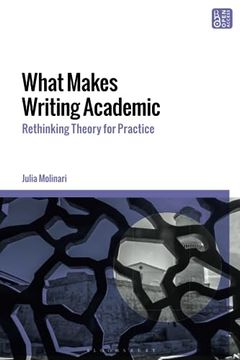Synopsis "What Makes Writing Academic: Rethinking Theory for Practice (in English)"
This open access book argues that what makes writing academic emerges from socio-academic and historical practices rather than conventionalised stylistic, linguistic or syntactic forms. Using a critical realist lens, it re-imagines academic writings as 21st-century open systems that change according to affordances perceived by writers. By re-imagining how, which and whose knowledge emerges, conceptual spaces are created whereby writing practices can be pluralised and democratised. Academic communication hinges on being able to write in certain forms but not others, which risks excluding knowledge that may lend itself to alternative forms of representation, such as dialogues, chronicles, manifestos, blogs, poems and comics. Moreover, because academic ability tends to be misleadingly conflated with writing ability, limiting how the academy writes to a relatively narrow set of forms (such as the traditional essay or thesis) may be preventing a range of abilities from emerging. Standardised forms require abstracts, introductions, main bodies and conclusions that are also predominantly monolingual and monomodal: this can narrow, distort, constrain or flatten epistemic representation, leading to a range of epistemic losses (as well as gains). Based on examples from a range of academic writers, including students, and drawing on the history of academia, philosophy, socio-semiotic research, integrational and sociolinguistics as well as studies in multimodal and visual thinking, the book proposes that academic writings be re-imagined as multimodal artefacts that allow a wider range of epistemic affordances to emerge.The ebook editions of this book are available open access under a CC BY-NC-ND 4.0 licence on bloomsburycollections.com. Open access was funded by Knowledge Unlatched.

